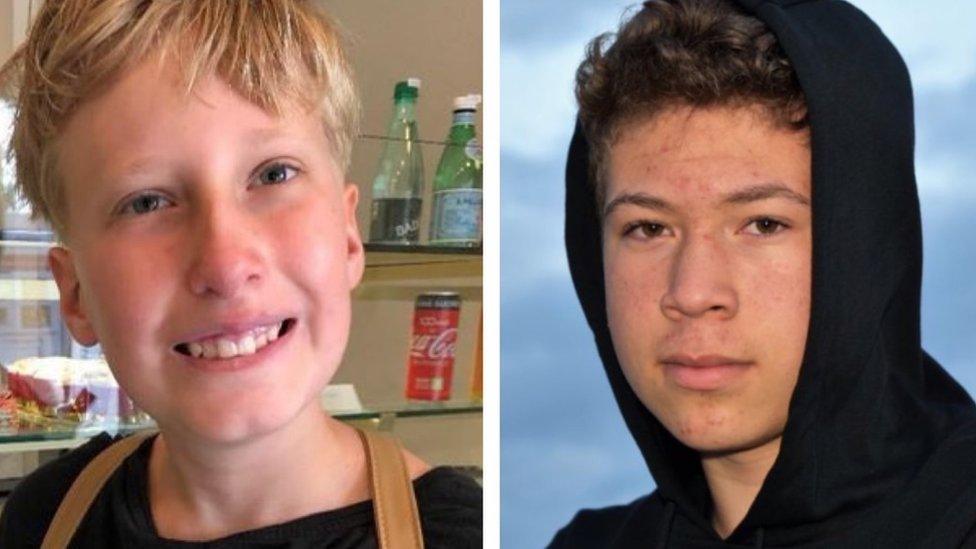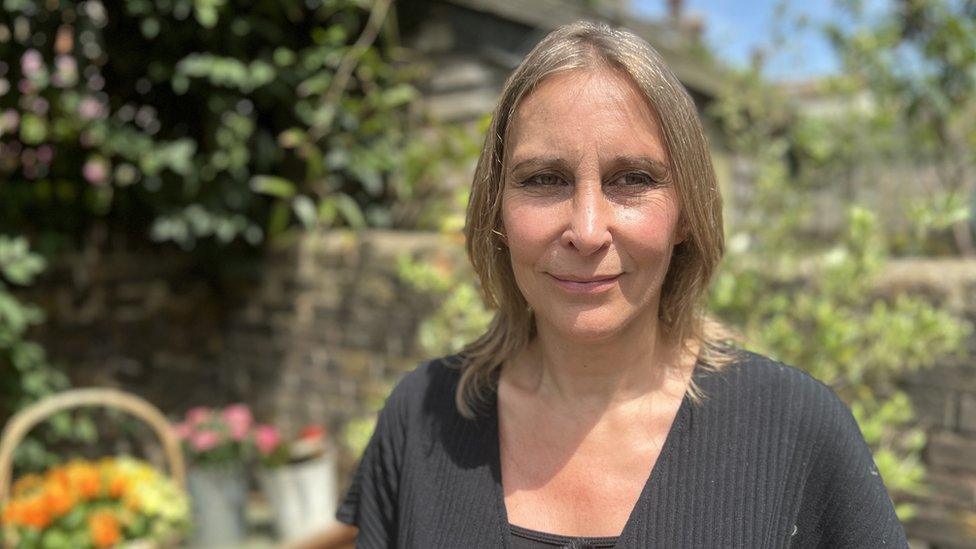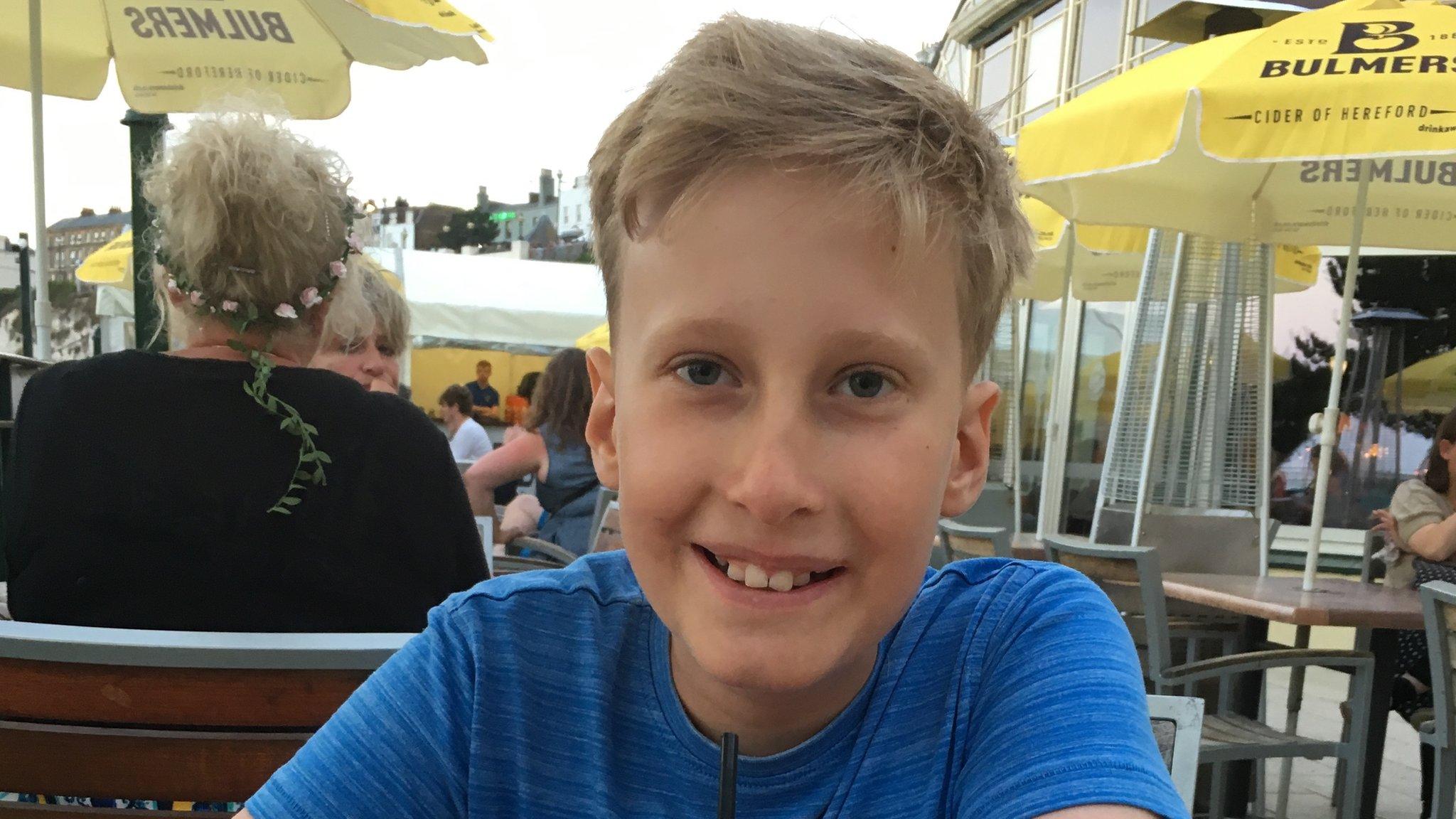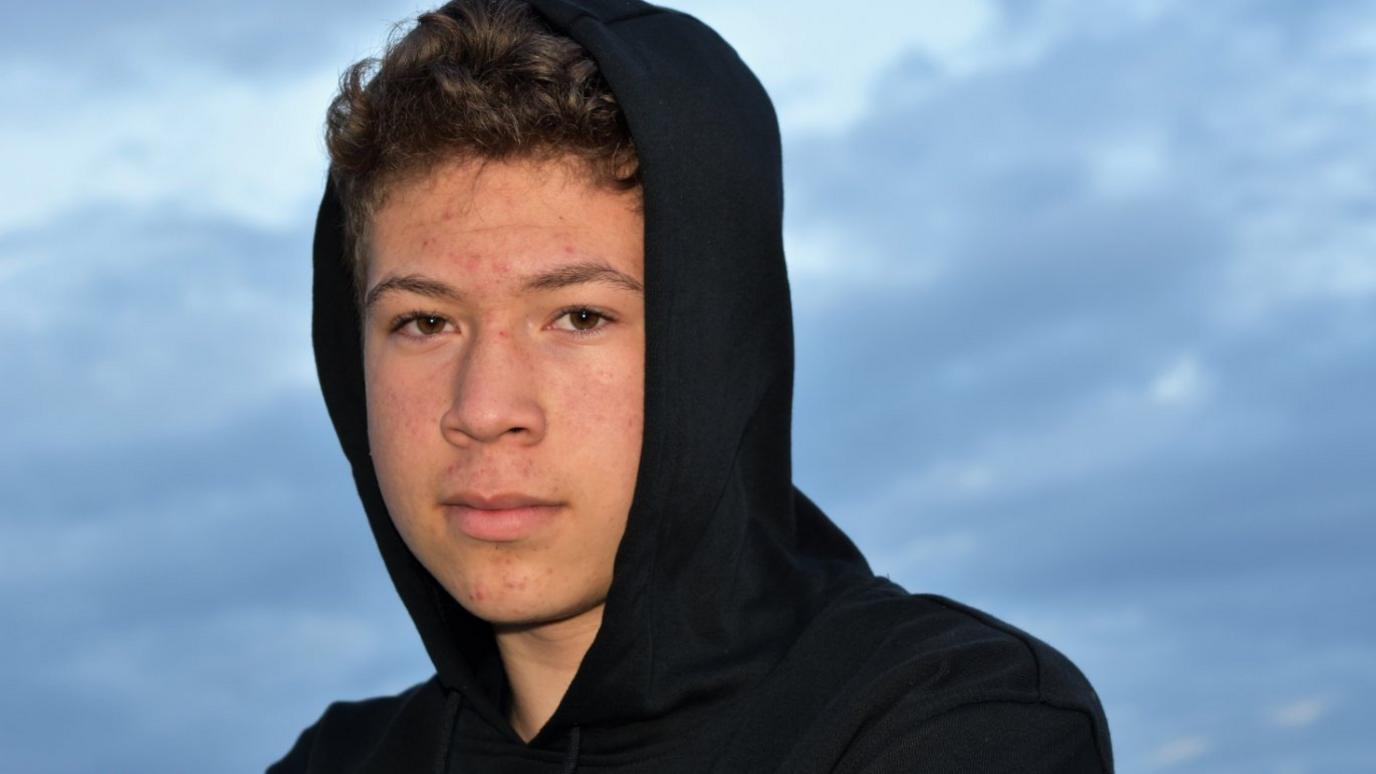Child disability: Urgent improvements needed, say grieving mums
- Published

Sammy Alban-Stanley, (left) and Oskar Nash (right) were both failed by authorities
The mothers of two teenage boys who died after failures in their care have called on the government to make "urgent improvements" to how children with disabilities are assessed.
Sammy Alban-Stanley, 13, and 14-year-old Oskar Nash both died in 2020.
Inquests for both boys recorded they had received inadequate care from local authorities and mental health services.
The calls were made in an open letter to the secretaries of state for health and social care, and education.
Both departments have been contacted for comment.
Patricia Alban and Natalia Nash asked Sajid Javid and Nadim Zahawi to make fundamental changes to several care areas to prevent future deaths.

Patricia Alban previously said her son Sammy's death was "preventable"
The pair said they both experienced problems with support for disabled children and families.
Services lacked understanding of neurological conditions like autism, they said.
The pair also pointed to a lack of access to children and adolescent mental health services (CAMHS), and failure to assess or review the severity of a child's developing needs.
Sammy Alban-Stanley, from Kent, had autism and a rare genetic condition called Prader-Willi Syndrome, both of which caused high-risk behaviour and saw him attempt to take his own life on multiple occasions.
He died after falling from a harbour wall in Ramsgate, Kent, in April 2020.
Oskar Nash, from Surrey, had Asperger's syndrome, an autism spectrum disorder, and took his own life on a railway near Egham, Surrey, in January of the same year.
He had talked about suicide from the age of six, but his emotional and mental health was never clinically assessed, despite a series of requests to CAMHS throughout his lifetime, from the age of three.
Ms Nash said that throughout her son Oskar's life there was "no understanding of his condition by any of the bodies engaged in his care" and "no appreciation for the additional challenges Oskar faced because of his condition".
Ms Nash added: "This is not going to change for other children in the same situation without hiring autism specialists that can guide other staff members and provide vital knowledge and training on a daily basis, whilst preparing care plans for children in need."
Ms Alban welcomed the collaboration with Ms Nash and said she hoped they could "be a force for good in creating an accountable and fair system in the UK under which disabled children do not continue to suffer and die unnatural, preventable deaths."
If you have been affected by any of these issues in this story you can find support at BBC Action Line.

Follow BBC South on Facebook, external, Twitter, external, or Instagram, external. Send your story ideas to south.newsonline@bbc.co.uk, external.
Related topics
- Published29 November 2021

- Published16 November 2021

- Published10 September 2021
